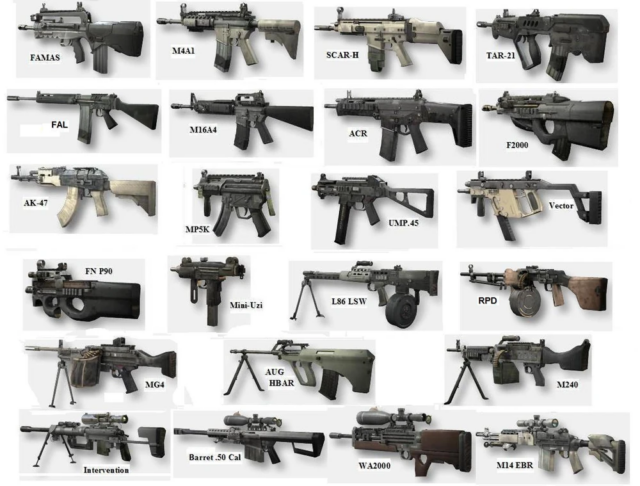Lawsuit argues Call of Duty helped cause the Uvalde school shooting


The families of multiple victims of the 2022 mass shooting at Uvalde’s Robb Elementary School are suing Activision in a California civil court, alleging that the company’s Call of Duty games act as a “training camp for mass shooters.”
The lawsuit (as obtained by Polygon) compares Activision’s Call of Duty marketing to the cigarette industry’s use of now-barred spokescartoon Joe Camel, putting the gaming company “in the wildly lucrative business of training adolescents to become gunmen.” The Call of Duty games “are chewing up alienated teenage boys and spitting out mass shooters,” the lawsuit alleges, and in Uvalde, the games “knowingly exposed the Shooter to the weapon, conditioned him to see it as the solution to his problems, and trained him how to use it.”
Meta platforms is also a party to the lawsuit for “explicit, aggressive marketing” of firearms to minors via Instagram.
Too real
While Call of Duty may have started as a mere video game, the lawsuit argues that more recent versions have crossed the line into a realistic “simulation” that “enables the operator to reproduce or represent under test condition phenomena likely to occur in actual performance.” The extreme realism in the game desensitizes players to killing in familiar environments like malls, airports, and restaurants, the suit says, and exposes “high-school aged boys with developing brains” to “morally complex situations with an assault weapon.”
By “manipulating players’ brain chemistry so that killing was associated with dopamine release, reward, and/or pleasure,” the suit alleges that the games cause a “real life physical and neurological response” that some users are likely to try to replicate in the real world. “It is highly foreseeable that the addictive and hyper-realistic content of Call of Duty products will lead some users, including minors, to attempt or achieve the real-life enactment of what the Call of Duty products simulate so effectively, including the use of firearms for mass killing,” the suit alleges.
In 2015, the American Psychological Association said that “violent video game play is linked to increased aggression in players.” But in a 2020 update, the APA clarified that there was no statistical link between exposure to violent video games and incidence of real-world violence, affirming earlier meta-analyses on the topic.
In a statement provided to Polygon, an Activision spokesperson said that “the Uvalde shooting was horrendous and heartbreaking in every way, and we express our deepest sympathies to the families and communities who remain impacted by this senseless act of violence. Academic and scientific research continues to show that there is no causal link between video games and gun violence.”
Real virtual guns
The lawsuit pays particular attention to Activision’s long-standing licensing agreements with real-world gun manufacturers, which bring additional realism to the games while promoting the gun-makers’ products. Gun-maker memos cited in the lawsuit show how the industry feels that “a primary means for young potential shooters to come into contact with firearms and ammunition is through virtual gaming scenarios.” And while the specific brands of those guns are not highlighted in the game itself, the lawsuit lays out significant evidence that gun buyers seek out the real versions of the weapons they use in the Call of Duty games.
“In service of… their bottom line, Activision created a firearm showroom for its millions of users—one where adults and teenagers alike could browse, test, covet, and compare each weapon’s capacity to kill,” the lawsuit alleges.

Daniel Defense, which manufactured the actual gun used in the Uvalde shooting, is not a defendant in the suit. While the plaintiffs say the gun maker’s actions are “contemptible, reckless, and at times unlawful,” it adds that the company “cannot reach its target demographic, teenagers and young men, without the substantial and critical assistance of the Defendants.”
Source link




